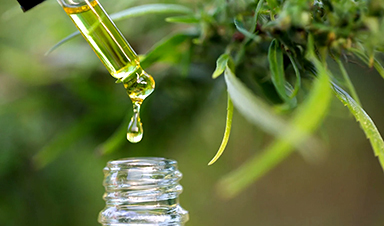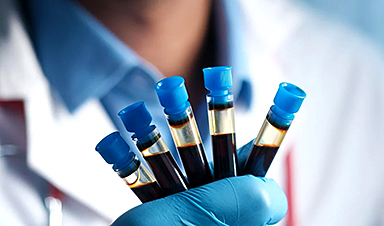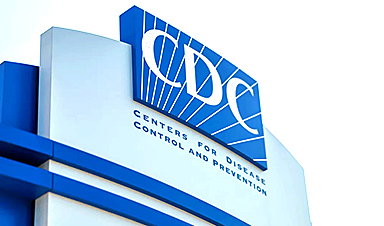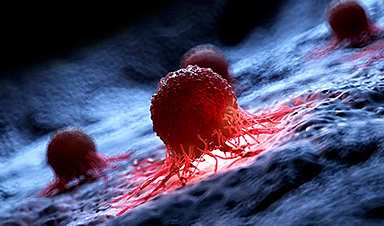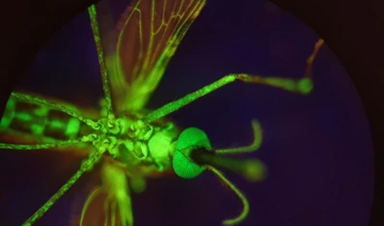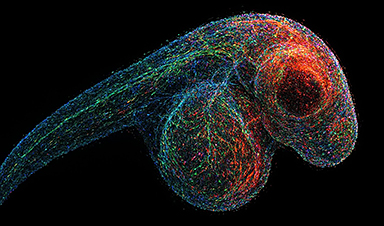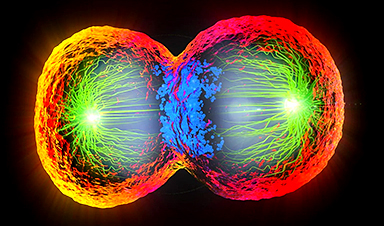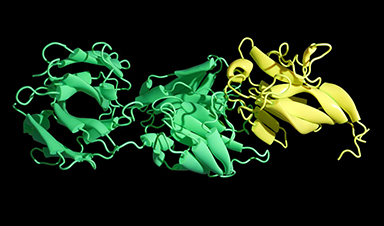CBD is gaining popularity as a remedy for pregnancy symptoms like nausea and anxiety, but new research suggests it may not be as safe as many believe.
A study from McMaster University found that oral cannabis use, including both THC and CBD, is linked to impaired fetal growth, abnormal placental development, and long-term behavioral changes in offspring.
CBD Use in Pregnancy: Research Uncovers Potential Risks
Cannabidiol (CBD), a compound in cannabis often used for therapeutic purposes, is becoming increasingly popular among pregnant individuals to help manage symptoms like nausea, anxiety, and sleep disturbances. While many believe that CBD — especially when taken orally — is a safer option, research on its effects during pregnancy remains limited.
A new study from researchers at McMaster University sheds light on this knowledge gap, revealing potential risks linked to both CBD and tetrahydrocannabinol (THC), the psychoactive component of cannabis. The findings suggest that using these substances during pregnancy may impair fetal growth and development.
Published today (February 5, 2025) in eBioMedicine, part of The Lancet Discovery Science, the study found that oral cannabis use from early to mid-pregnancy was associated with restricted fetal growth, changes in placental development, and long-term effects on offspring behavior, including altered aggression, activity levels, and learning ability.
Perception vs. Reality: Is CBD Really Safe?
“The use of cannabis during pregnancy is rising in Canada. Most previous studies focus on exposure to cannabis smoke or just the psychoactive component of cannabis (THC), leaving other cannabis ingredients and methods of consumption understudied. However, consuming cannabis orally or only using other cannabis ingredients like CBD, is often perceived as safer despite this lack of evidence. Our study is shedding light that there’s a possibility that CBD might also be harmful in the pregnancy,” says Tyrah Ritchie, who led the study while completing her master’s degree in the Medical Sciences program at McMaster University and with the McMaster Immunology Research Centre.
Cannabis Use May Impact Growth and Behavior
The group of scientists led by Ritchie and Ali Ashkar, professor with McMaster’s Department of Medicine, conducted the research by administering cannabis oil to mouse models and followed the development of the fetuses during pregnancy and post-birth.
The researchers found that both THC and CBD impaired fetal growth causing fetuses to be small when compared to mice that did not receive cannabis. Additionally, they found that both THC and CBD impact the development of the blood vessels that supply the placenta and therefore the baby with nutrients.
“We did see that both THC and CBD can disrupt a special type of immune cell called a Uterine NK Cell that is crucial in normal development of the placenta. We also saw poor development of the arteries that help supply blood to the placenta. We’re thinking this is what is possibly disrupting the nutrient and oxygen delivery to the baby and contributing to the intrauterine growth restriction,” says Ashkar.
Long-Term Effects on Offspring Behaviour
When observing the behavior of the babies post-birth, researchers found changes in their aggression, activity levels, and even learning ability.
“Oral use of THC and CBD during the pregnancy not only disrupts the growth of the baby but seems to have long-term consequences as the babies were found to have changes in their behavior later in life,” says Ritchie.
More Research Needed on CBD and Pregnancy
Ritchie says more research is needed to better understand the impacts of cannabis in humans during pregnancy, but says this study shows the possibility of it being dangerous or harmful.
Reference: “The impact of oral cannabis consumption during pregnancy on maternal spiral artery remodelling, fetal growth and offspring behaviour in mice” by Tyrah M. Ritchie, Emily Feng, Fatemeh Vahedi, Sofya Ermolina, Christian J. Bellissimo, Erica De Jong, Ana L. Portillo, Sophie M. Poznanski, Lauren Chan, Sara M. Ettehadieh, Deborah M. Sloboda, Dawn M.E. Bowdish and Ali A. Ashkar, 5 February 2025, eBioMedicine.
DOI: 10.1016/j.ebiom.2025.105572
Funding for the study was provided by The Michael G. DeGroote Centre for Medicinal Cancer Research, the Canadian Institutes of Health Research, and the Canadian Foundation for Innovation.
News
AI Outperforms Physicians in Real-World Urgent Care Decisions, Study Finds
The study, conducted at the virtual urgent care clinic Cedars-Sinai Connect in LA, compared recommendations given in about 500 visits of adult patients with relatively common symptoms – respiratory, urinary, eye, vaginal and dental. [...]
Challenging the Big Bang: A Multi-Singularity Origin for the Universe
In a study published in the journal Classical and Quantum Gravity, Dr. Richard Lieu, a physics professor at The University of Alabama in Huntsville (UAH), which is a part of The University of Alabama System, suggests that [...]
New drug restores vision by regenerating retinal nerves
Vision is one of the most crucial human senses, yet over 300 million people worldwide are at risk of vision loss due to various retinal diseases. While recent advancements in retinal disease treatments have [...]
Shingles vaccine cuts dementia risk by 20%, new study shows
A shingles shot may do more than prevent rash — it could help shield the aging brain from dementia, according to a landmark study using real-world data from the UK. A routine vaccine could [...]
AI Predicts Sudden Cardiac Arrest Days Before It Strikes
AI can now predict deadly heart arrhythmias up to two weeks in advance, potentially transforming cardiac care. Artificial intelligence could play a key role in preventing many cases of sudden cardiac death, according to [...]
NanoApps Medical is a Top 20 Feedspot Nanotech Blog
There is an ocean of Nanotechnology news published every day. Feedspot saves us a lot of time and we recommend it. We have been using it since 2018. Feedspot is a freemium online RSS [...]
This Startup Says It Can Clean Your Blood of Microplastics
This is a non-exhaustive list of places microplastics have been found: Mount Everest, the Mariana Trench, Antarctic snow, clouds, plankton, turtles, whales, cattle, birds, tap water, beer, salt, human placentas, semen, breast milk, feces, testicles, [...]
New Blood Test Detects Alzheimer’s and Tracks Its Progression With 92% Accuracy
The new test could help identify which patients are most likely to benefit from new Alzheimer’s drugs. A newly developed blood test for Alzheimer’s disease not only helps confirm the presence of the condition but also [...]
The CDC buried a measles forecast that stressed the need for vaccinations
This story was originally published on ProPublica, a nonprofit newsroom that investigates abuses of power. Sign up to receive our biggest stories as soon as they’re published. ProPublica — Leaders at the Centers for Disease Control and Prevention [...]
Light-Driven Plasmonic Microrobots for Nanoparticle Manipulation
A recent study published in Nature Communications presents a new microrobotic platform designed to improve the precision and versatility of nanoparticle manipulation using light. Led by Jin Qin and colleagues, the research addresses limitations in traditional [...]
Cancer’s “Master Switch” Blocked for Good in Landmark Study
Researchers discovered peptides that permanently block a key cancer protein once thought untreatable, using a new screening method to test their effectiveness inside cells. For the first time, scientists have identified promising drug candidates [...]
AI self-cloning claims: A new frontier or a looming threat?
Chinese scientists claim that some AI models can replicate themselves and protect against shutdown. Has artificial intelligence crossed the so-called red line? Chinese researchers have published two reports on arXiv claiming that some artificial [...]
New Drug Turns Human Blood Into Mosquito-Killing Weapon
Nitisinone, a drug for rare diseases, kills mosquitoes when present in human blood and may become a new tool to fight malaria, offering longer-lasting, environmentally safer effects than ivermectin. Controlling mosquito populations is a [...]
DNA Microscopy Creates 3D Maps of Life From the Inside Out
What if you could take a picture of every gene inside a living organism—not with light, but with DNA itself? Scientists at the University of Chicago have pioneered a revolutionary imaging technique called volumetric DNA microscopy. It builds [...]
Scientists Just Captured the Stunning Process That Shapes Chromosomes
Scientists at EMBL have captured how human chromosomes fold into their signature rod shape during cell division, using a groundbreaking method called LoopTrace. By observing overlapping DNA loops forming in high resolution, they revealed that large [...]
Bird Flu Virus Is Mutating Fast – Scientists Say Our Vaccines May Not Be Enough
H5N1 influenza is evolving rapidly, weakening the effectiveness of existing antibodies and increasing its potential threat to humans. Scientists at UNC Charlotte and MIT used high-performance computational modeling to analyze thousands of viral protein-antibody interactions, revealing [...]
